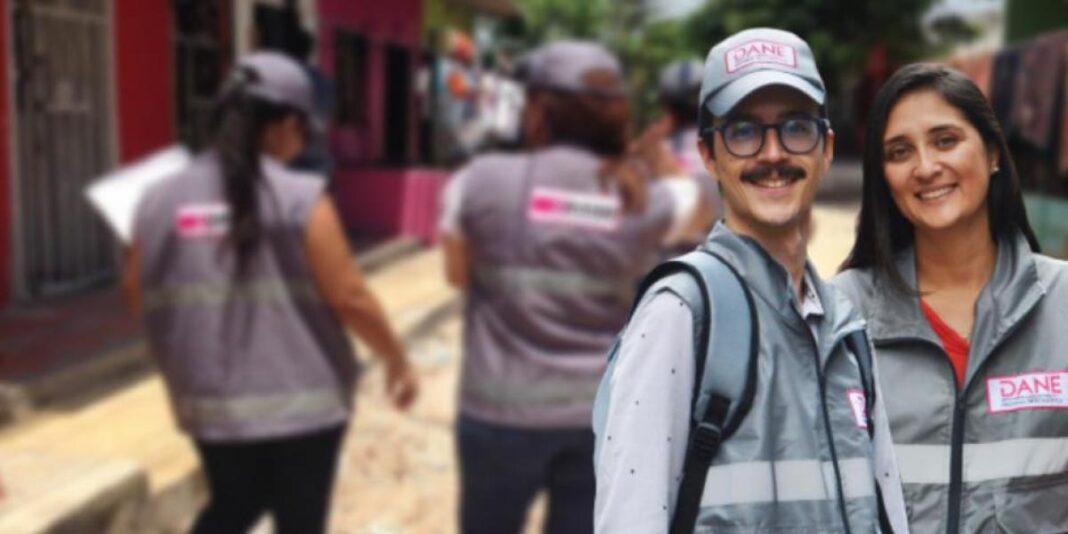BTN News: In a pivotal move for Colombia’s economy, the 2024 National Urban Economic Census (CENU) was launched in Cartagena, with the Director of DANE, B. Piedad Urdinola C., leading the announcement. The ambitious project will see 8,000 census takers comb urban areas across the country to collect crucial data on approximately 3.5 million businesses and street vendors. The initiative is designed to offer a comprehensive look at Colombia’s urban economy, formal and informal alike.
The launch marks the beginning of the census’ sweeping stage, during which field agents will visit shops, households with economic activities, and street vendors. Cartagena’s Bazurto market, known for its fusion of formal and informal economies, was chosen as the symbolic starting point, emphasizing the city’s role as a significant hub of economic activity.
Ambitious Census Targets: Millions of Establishments to Be Covered
In an effort to capture an inclusive snapshot of Colombia’s economic landscape, DANE aims to reach nearly 3.5 million establishments, including street vendors and small businesses. The data collected will help policymakers better understand the strengths and challenges of urban businesses, particularly those operating in the informal sector. According to Urdinola, this marks one of the most extensive efforts in recent years to map Colombia’s economy in such granular detail.
“Bazurto not only supplies Cartagena with fresh produce but also fuels thousands of jobs and supports industries like transportation and food services,” Urdinola stated during the event. The market was specifically highlighted as a key driver of local economic development.
First Census Stamp: Setting the Pace for Efficiency
The official start of the fieldwork was marked by Urdinola placing the first “Censado” (Censused) sticker on a local business. The business, owned by Arlen Karen Acero Rivera, was the first to complete the process, which she described as efficient and straightforward. “It took less than 15 minutes, and I feel confident providing this data because it will benefit businesses like mine by revealing strengths and weaknesses,” Acero Rivera said.
The Census Economic National Urban 2024 will span the entire country, with field agents visiting urban zones to assess a wide range of establishments, including both brick-and-mortar stores and mobile vendors.
Including Colombia’s Ethnic-Racial Communities: A First for CENU
For the first time, the census includes an ethnic-racial component, recognizing the contributions of Colombia’s indigenous, Afro-Colombian, Palenquero, Raizal, and Rrom communities. This addition is aimed at shedding light on how these groups contribute to local commerce, small and medium-sized enterprises (SMEs), and traditional craftsmanship, often integrating ancestral knowledge into their economic practices.
Andrea Ramírez Pisco, DANE’s Deputy Director, emphasized that community leaders and ethnic-racial liaisons have been consulted to ensure that census questions are culturally relevant and respectful. “We want to give visibility to the economic roles these communities play and how they contribute to the nation’s broader economic fabric,” Ramírez Pisco explained.
Self-Enumeration Success and Business Participation So Far
In parallel with the field operations, self-enumeration was launched in June, focusing on industries such as transportation. As of the latest report, over 2,000 transportation companies have completed their digital census forms, highlighting the importance of technology in streamlining the data collection process.
Meanwhile, more than 2,600 companies in sectors such as Public Administration, Finance, Defense, and Public Services have already completed the digital census process. This allows DANE to efficiently gather data from large industries as part of a multi-pronged approach to economic mapping.
Next Steps: Expanding to Small, Medium, and Large Enterprises
The small, medium, and large enterprises (SMEs) sector is next in line, with an operational start already in motion this month. DANE expects to gather responses from approximately 30,000 businesses in manufacturing, commerce, and services via digital questionnaires, continuing the census effort’s momentum.
Urdinola stressed the importance of cooperation from the public and businesses, urging them to welcome census agents and actively participate in the data collection process. “This operation is crucial for the success of the Census Economic National Urban 2024. The data collected will not only support future policy decisions but also aid in understanding the evolving needs of Colombia’s urban economies,” she added.
Final Call: A Nationwide Effort for Economic Transparency
DANE’s urban economic census is a significant undertaking aimed at providing a full picture of Colombia’s urban economy, with a particular focus on understanding both formal and informal sectors. The involvement of ethnic-racial groups, coupled with the strong participation of businesses from various industries, positions this as one of the most inclusive and comprehensive census efforts in Colombia’s history.
With operations set to expand in the coming months, DANE continues to call on businesses and individuals to engage with the census process, underscoring that the data gathered will ultimately benefit the entire Colombian economy.


